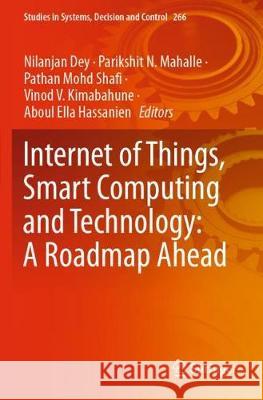Internet of Things, Smart Computing and Technology: A Roadmap Ahead » książka
topmenu
Internet of Things, Smart Computing and Technology: A Roadmap Ahead
ISBN-13: 9783030390495 / Angielski / Miękka / 2021 / 403 str.
Internet of Things, Smart Computing and Technology: A Roadmap Ahead
ISBN-13: 9783030390495 / Angielski / Miękka / 2021 / 403 str.
cena 644,07
(netto: 613,40 VAT: 5%)
Najniższa cena z 30 dni: 616,85
(netto: 613,40 VAT: 5%)
Najniższa cena z 30 dni: 616,85
Termin realizacji zamówienia:
ok. 22 dni roboczych
Dostawa w 2026 r.
ok. 22 dni roboczych
Dostawa w 2026 r.
Darmowa dostawa!
Kategorie:
Kategorie BISAC:
Wydawca:
Springer
Seria wydawnicza:
Język:
Angielski
ISBN-13:
9783030390495
Rok wydania:
2021
Wydanie:
2020
Numer serii:
000477984
Ilość stron:
403
Waga:
0.58 kg
Wymiary:
23.39 x 15.6 x 2.18
Oprawa:
Miękka
Wolumenów:
01
Dodatkowe informacje:
Wydanie ilustrowane











